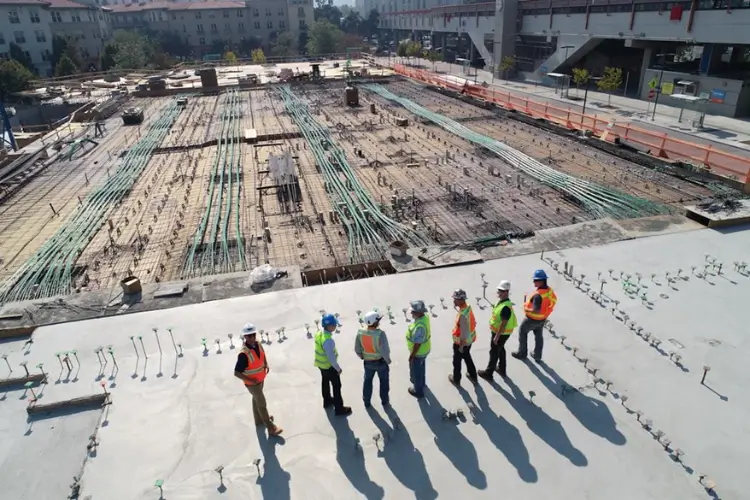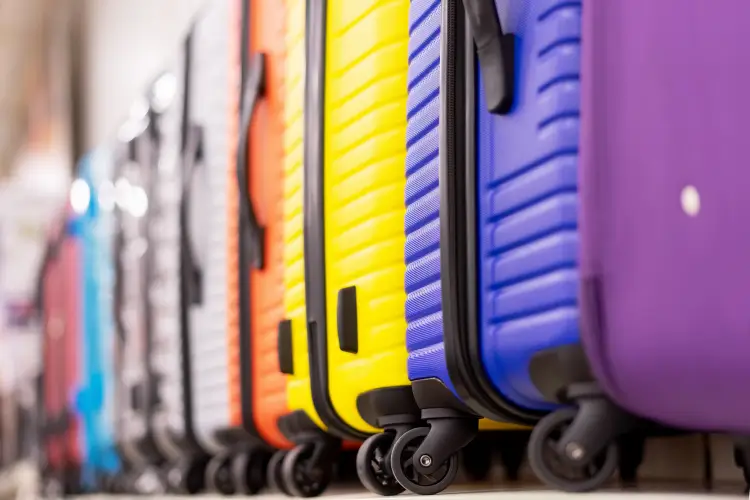Summary Points:
- Proper waste management ensures construction sites stay safe, organized, and compliant.
- Choose the correct skip bin size to match the scale of your project and waste needs.
- Opt for providers offering reliable delivery, pickup, and flexible scheduling.
- Partner with companies that prioritize compliance with regulations and recycling.
- Plan skip bin placement and monitor waste levels to optimize on-site waste removal.
The Importance of Proper Waste Management on Construction Sites
Effective waste management on construction sites is critical to keeping your project safe, organized, and on schedule. Construction work naturally generates a wide range of waste—concrete, timber, bricks, metals, and general debris—that can quickly become a safety hazard if not managed properly.
Neglecting waste disposal can slow down productivity, clutter workspaces, and even lead to costly penalties for non-compliance with local regulations. An organized waste management system ensures materials are sorted, disposed of responsibly, and cleared from the site efficiently so your team can focus on completing the job.
Proper waste management also saves money. When waste is handled efficiently, you avoid unnecessary costs associated with multiple collections, delays, or fines. For comprehensive and efficient waste removal services that cater to various project needs, Learn more about Dump Runners. From small renovations to large-scale construction projects, having a reliable waste disposal solution in place is essential for staying on track and ensuring a smoother workflow.
How to Choose the Right Skip Bin Size for Construction Waste
Construction projects produce waste in all shapes and sizes, so choosing the correct skip bin size is crucial for keeping your site efficient and cost-effective. The right skip bin prevents you from paying for unnecessary space or, worse, running out of room and needing multiple collections.
Start by estimating the types of waste your project will generate. For smaller jobs like home renovations, a mid-sized skip may be enough to handle materials like timber, bricks, and tiles. For larger commercial or demolition projects, you’ll need a much bigger bin to accommodate bulkier waste like concrete and metal.
If you’re in New South Wales, providers offering construction skip bin hire in Sydney often have a wider range of bin sizes to suit the needs of denser, city-based projects. The variety ensures you’ll find the perfect size for your waste—whether it’s a tight inner-city site or a larger commercial job—helping you manage space and costs effectively.
Taking the time to choose the correct size skip bin not only keeps your site clean and organized but also allows waste removal to happen seamlessly without interruptions.
Look for Providers That Offer Timely and Flexible Services
Construction projects run on tight schedules, and any delays—whether from waste buildup or late skip bin collections—can throw off your entire timeline. That’s why it’s essential to choose a reputable firm that provides skip bins and waste containers for construction sites. Such providers typically offer reliable delivery, flexible pickups, and a schedule that works around your project’s needs.
The best providers will coordinate with you to ensure the skip bin arrives on time and is collected promptly once it’s full. Some companies even offer same-day or next-day services, making them ideal for busy construction sites with shifting deadlines.
Flexibility is key. A great provider should allow you to extend hire periods if needed or arrange additional bins on short notice. This level of service not only keeps your site running smoothly but also minimizes downtime, so your team can stay focused on the work at hand.
Beyond flexible bin hire, some providers can coordinate end-to-end site preparation that goes beyond simple waste removal. For projects that require thorough finalization, specialist crews handle tasks such as demolition debris removal, surface cleaning, and interior finish cleaning—often described as construction site cleaning—so spaces are ready for inspections or handover. These services prioritize safety, dust control, and regulatory compliance, reducing the risk of delays. Selecting a partner that offers both waste logistics and post-construction cleaning can streamline scheduling and minimize repeated site visits.
Ensure Your Provider Prioritizes Compliance and Recycling
Proper waste disposal on construction sites isn’t just about clearing debris—it’s about ensuring compliance with local regulations and minimizing environmental impact. Choosing a provider that prioritizes responsible waste management helps you meet your legal obligations and support sustainable practices.
Reputable skip bin hire providers will sort through collected waste, separating recyclable materials like metals, timber, and concrete to divert them from landfills. This not only reduces environmental harm but can also save on disposal costs for your project.
It’s also important to confirm that your provider complies with local laws regarding construction waste. Non-compliance can lead to penalties or fines, creating unnecessary setbacks. A provider committed to recycling and adhering to regulations makes the process seamless, giving you peace of mind knowing your project is both efficient and eco-friendly.
By partnering with a provider that prioritizes compliance and sustainability, you ensure your construction site operates responsibly while contributing to greener, more efficient waste management solutions.
Tips for Optimizing Your Construction Site’s Waste Removal
Managing construction waste efficiently doesn’t stop at choosing the right provider—it’s also about optimizing your site to make the process as smooth as possible. A well-thought-out approach ensures waste removal happens seamlessly, saving time and keeping the workspace organized.
1. Plan Skip Bin Placement – Position skip bins strategically on-site to make it easy for workers to dispose of waste without disrupting workflows. A central, accessible location minimizes trips and keeps the site clear.
2. Sort Waste as You Go – Encourage on-site waste sorting by separating recyclables, general waste, and hazardous materials. This reduces cleanup time and ensures waste is handled responsibly.
3. Monitor Waste Levels – Keep an eye on skip bins to avoid overfilling. Promptly schedule pickups or replacements to prevent waste overflow, which can slow down work or create safety hazards.
In addition to managing waste effectively, securing the site with proper hoarding is equally important. High-quality hoarding helps maintain a clean, organized workspace while protecting materials and equipment from theft or damage. Partnering with experienced hoarding contractors ensures your site is professionally enclosed, enhancing both safety and compliance throughout the project.
By implementing these simple strategies, you’ll maximize efficiency, reduce unnecessary downtime, and maintain a safer, cleaner construction site. A little planning goes a long way in ensuring waste removal doesn’t become a roadblock for your project.
Conclusion
Efficient waste management is essential for keeping construction projects on time, safe, and cost-effective. By choosing the right skip bin size, working with providers who offer timely services, prioritizing compliance, and optimizing on-site processes, you can streamline the entire waste removal process.
Taking the time to plan waste management properly will not only save you money but also ensure a smoother, more organized job site from start to finish.




